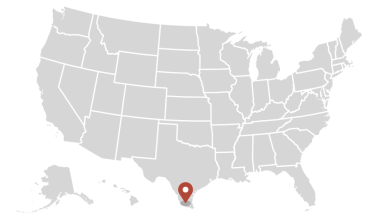Biden Made a Historic Supreme Court Pick. What Now?

When word first leaked Friday that President Biden had chosen Judge Ketanji Brown Jackson as the first Black woman to serve on the Supreme Court, Democrats and civil rights activists were ecstatic.
“My first reaction was: It’s 2022 and we’re still doing firsts?” said Tré Easton, a progressive strategist. “But then it hit me. It was a pretty emotional moment.”
Glynda Carr, the president and chief executive of Higher Heights for America, which advocates for Black representation in politics, called it “long overdue.” She noted that there were “currently zero Black women on the Supreme Court, zero Black women in the Senate, zero Black women governors and zero Black women who have ever served as president of this country.”
Democrats we spoke to emphasized the breakthrough nature of Biden’s pick, and pointed to Jackson’s scholarly pedigree and years on the federal bench.
“I think that what people see is an exceptionally qualified nominee who is also making history as the first Black woman,” said Stephanie Cutter, a Democratic strategist who was part of a team that helped with Justice Sonia Sotomayor’s confirmation in 2009.
Biden’s political calculus
But the political imperative of Biden’s choice was lost on no one. Two years ago to the day, on the debate stage in the must-win state of South Carolina, Biden promised to name a Black woman to the Supreme Court.
Easton noted that Biden’s job approval ratings have dipped in recent months, specifically with African Americans. And while many factors account for that decline, including rising inflation and Democrats’ failure to pass federal voting rights legislation, confirming Jackson might help stop or slow the president’s slide.
“This is one of the few things that he specifically can control,” Easton said.
Under Biden, the Senate has already confirmed a diverse slate of federal judges, including 31 men and women of color. But with a lot of other issues on voters’ minds, it’s an open question whether nominating Jackson will help Biden’s party in the upcoming midterm elections. Democrats have long struggled to match Republicans’ intensity on judicial appointments, and most voters don’t follow federal courts closely.
“It’s important to keep your promises,” said Silas Lee, a pollster who worked on Biden’s presidential campaign, “but you have to constantly remind people of that.”
The safe pick
In the end, Biden went with the safe choice.
That might sound like an odd thing to say, considering that Jackson is poised to become the first Black woman on the Supreme Court after 230-some years that were dominated by white men. But she’s also an insider — a former clerk for Stephen Breyer, the justice she would replace, and a product of a certain well-regarded law school in Cambridge, Mass.
Jackson has already been confirmed by the Senate three times, including for her current seat on the U.S. Court of Appeals for the D.C. Circuit. That court is often a feeder institution for the Supreme Court, in part because it deals mainly with arcane matters of administrative law, rather than the political kindling that tends to dominate nomination fights — abortion, guns, gender, freedom of speech, religion.
Senators and their aides have combed through reams of pages of Jackson’s judicial record — including the nearly 600 opinions that she wrote as a district court judge. She even picked up three Republican senators’ votes for her appeals court confirmation: Susan Collins of Maine, Lindsey Graham of South Carolina and Lisa Murkowski of Alaska.
That doesn’t necessarily mean they’ll vote for Jackson again — Graham, for instance, is now saying “the radical Left has won,” and that he would have preferred J. Michelle Childs, a district judge in South Carolina.
But because Democrats control the Senate and likely will have the votes to confirm Jackson along party lines, the coming battle over her nomination will resemble what fans of professional wrestling call “kayfabe.”
As the sociologist Nick Rogers said of the term in a guest opinion essay back in 2017, “We’ll present you something clearly fake under the insistence that it’s real, and you will experience genuine emotion. Neither party acknowledges the bargain, or else the magic is ruined.”
Not much of a fight expected, but it could still get ugly
Besides Graham, several other Republican senators have put out a range of statements. Senator Tim Scott of South Carolina expressed disappointment that Biden didn’t pick Childs. Senator Mitt Romney of Utah called her nomination “historic.” Collins, whose input will be critical to securing the bipartisan support Biden wants, called her “an experienced federal judge with impressive academic and legal credentials.”
None of them committed to voting for Jackson, however. On the left, a nexus of newly empowered activists could alienate some Republican senators, Hill aides say. On the right, powerful conservative legal advocacy groups such as the Judicial Crisis Network might be itching for a showdown that Senate moderates don’t want.
“Conservative voters expect senators to stand up and fight,” said Bobby Donachie, vice president of Athos, which represents several right-leaning organizations involved in judicial nominations. “Any Republican who votes for Jackson will have to answer for the decisions she makes.”
But, as our colleague Carl Hulse has reported, Republican leaders don’t appear to have much appetite for a protracted nomination battle. They probably don’t have the votes, and are leery of giving Democrats an opening to level charges of racism.
That doesn’t mean they’ll vote for Jackson. Mitch McConnell, the Senate’s top Republican and its leading strategist on judicial nominations, noted that he previously voted against her and said in a statement that she was the “favored choice of far-left dark-money groups that have spent years attacking the legitimacy and structure of the Court itself.”
Republican committees and outside groups, meanwhile, will use the occasion to raise money and build their mailing lists. In their statement, Senate Republicans said Democrats had “blindly rubber-stamped Joe Biden’s disastrous liberal agenda.” House Republicans sent out an email asking voters to help the group “STOP Biden’s radical Supreme Court nominee.”
Jeremy Paris, who worked on four Supreme Court nominations at senior levels as a Democratic aide in the Senate, said that he expected “relatively smooth sailing” for Jackson.
But he cautioned that the dynamics of her hearing could be volatile, noting that several Republican senators on the Judiciary Committee have signaled that they plan to question Biden’s pick aggressively.
Two members of the committee, Senators Josh Hawley of Missouri and Ted Cruz of Texas, are widely assumed to be considering runs for president in 2024. They could make trouble for Jackson as she defends her voluminous record of writings and opinions on live national television.
“That’s a moment that will matter and will have its own momentum,” Paris said.
What to read
-
Katie Rogers has the latest on President Biden’s introduction of Judge Ketanji Brown Jackson, who gave remarks at the White House on Friday. And Carl Hulse tracked the reaction on Capitol Hill.
-
Follow our Live coverage from Ukraine, Moscow, and around the globe as the Russian military attacks Kyiv, the Ukrainian capital.
-
In social media posts, right-wing podcasts, and some conservative media, pro-Russia sentiments have become an “an extension of the culture wars and grievance politics that have animated the right in the United States in the past few years,” report Davey Alba and Stuart A. Thompson.
-
A restrictive new voting law in Texas has led to a surge in rejected absentee ballot applications, Nick Corasaniti reports, ahead of primary elections there next week.
viewfinder
A Busy Briefing Room
On Politics regularly features work by Times photographers. Here’s what Al Drago told us about capturing the image above:
There has been quite a bit of unpredictability and tension in the air at the White House this week, as President Biden responded to Russian attacks on Ukraine. This briefing was shortly after Biden’s speech announcing new sanctions against Russia on Tuesday. He did not take questions during his address, so I knew the briefing room would be packed with journalists seeking more information from Jen Psaki, the press secretary.
I believe it is important to continue to find unique angles for every assignment, especially when I have photographed the same room many times before. I had been waiting to make a photograph like this, since the number of people in the briefing room had been in flux because of social distancing and the pandemic.
To get the shot, I mounted a prefocused camera ahead of time and I manually hit the remote when I could clearly see Psaki’s facial expressions.
Is there anything you think we’re missing? Anything you want to see more of? We’d love to hear from you. Email us at [email protected].





